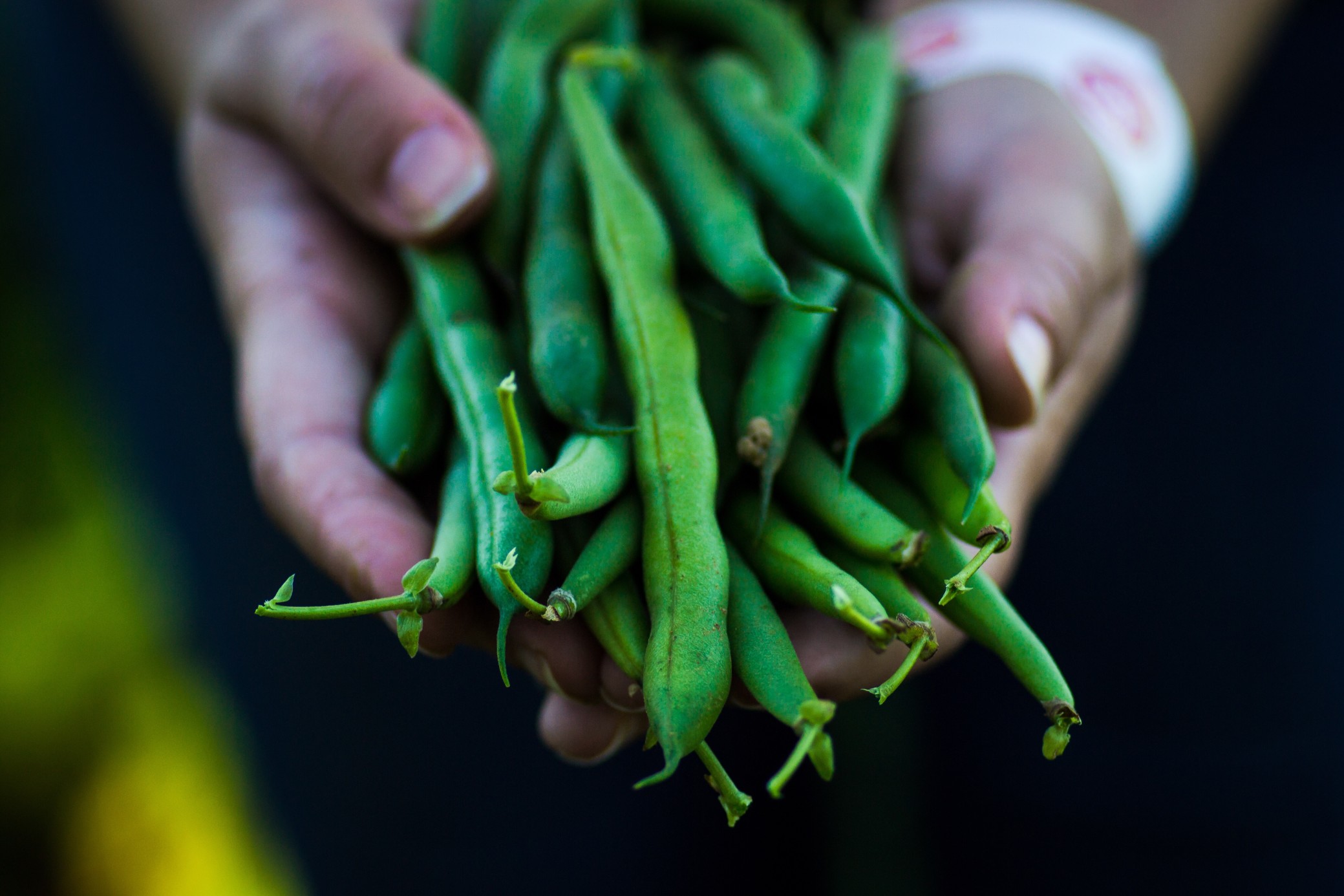LOCAL FOOD SUPPLY CHAIN
Expand food infrastructure so local and regional food producers can gather, distribute, and market their food products to serve local needs
LEVERAGE COMMUNITY-LEVEL INVESTMENTS TO STRENGTHEN THE REGIONAL FOOD SYSTEM
Local Food Supply Chain
Create wholesale, retail, and institutional food supply chains (aka food hubs) that connect more residents to healthy food while also strengthening the local economy. Develop relationships with local and regional businesses that gather, distribute, and market food from local and regional farmers and other producers, prioritizing Equitable Food Oriented Development (EFOD) organizations, as outlined by the EFOD Steering Committee. Programs should also open new markets for BIPOC farmers and other producers at regional institutions (schools and hospitals), address storage and distribution issues, and connect with existing programs such as SNAP and double bucks. This will assist people who are food-insecure, have been impacted by COVID-19, or have other priority needs to access healthy food.
- Local and rural food hub infrastructure, staffing, and their coordination
- Food storage, processing, and distribution
- Technical assistance for relationship building between farmers and institutions
- Support for sustainable business planning
This promising strategy requires investment in:
- Local and rural food hub infrastructure, staffing and their coordination
- Food storage, processing, and distribution
- Technical assistance for relationship building between farmers and institutions
- Support for sustainable business planning
Evaluation of Promising Strategy in Initial Target Regions
Learn more about the Investment Map’s selection of Initial Target Regions.
In Piedmont Triad, Guildford County (High Point) is an immigrant resettlement community with over 33 community gardens contributing to the High Point Food Hub. This model uplifts the most marginalized grassroots efforts contributing to the local food systems.
Commercial and Urban Food Hubs are needed, especially while COVID-19 makes it difficult for residents to safely access healthy food. Food hubs lack the infrastructure and/or partnerships needed to provide ongoing business support for local entrepreneurs/small business owners. There are no commercial food hubs.
- Viability of food hub businesses. Metric = % increase in sales for food hub, and % increase in overall profit for food hub.
- Increased institutional procurement of local/regional foods. Metric = % of institutional spend ($) on local/regional food products.
- Increased markets and viability of small and mid-size local farms. Metric = % increase in sales for farm, and % increase in overall profit for farm.
- Increased markets and viability of BIPOC, women, or veteran-owned food and farm businesses. Metric = % increase in sales for business, and % increase in overall profit for business.
- Access to appropriate/responsive capital for food hub businesses. Metric = business owner reports of access to capital (qualitative).
- Market access for small and mid-size local farms and food businesses. Metric = Number of institutions (hospitals) using alternative purchasing pathways to increase spending with food hubs.
- Market access for BIPOC owned food and farm businesses. Metric = number of businesses owned by BIPOC and relative percentage to all engaged businesses.
- Support for food hub general operating. Metric = amount of $ going specifically into general operating support (not program-related).
Previous Food Hub infrastructure established, including Southern Appalachian Family Farms servicing Graham & Cherokee counties (currently non-operational). Foothills Food Hub – managed by McDowell Local Food Advisory, supporting Rutherford, McDowell, and Burke counties (expected completion 2021). The initial investment by Gateway Wellness Foundation of $100,000 increased to $150,000 due to COVID-19.
Existing food hub, Southern Appalachian Family Farms, servicing Graham and Cherokee counties, closed (before COVID-19) due to financial difficulties
- Viability of food hub businesses. Metric = % increase in sales for food hub, and % increase in overall profit for food hub.
- Increased institutional procurement of local/regional foods. Metric = % of institutional spend ($) on local/regional food products.
- Increased markets and viability of small and mid-size local farms. Metric = % increase in sales for farm, and % increase in overall profit for farm.
- Increased markets and viability of BIPOC, women, or veteran-owned food and farm businesses. Metric = % increase in sales for business, and % increase in overall profit for business.
- Access to appropriate/responsive capital for food hub businesses. Metric = business owner reports of access to capital (qualitative).
- Market access for small and mid-size local farms and food businesses. Metric = number of institutions (hospitals) using alternative purchasing pathways to increase spending with food hubs.
- Market access for BIPOC owned food and farm businesses. Metric = number of businesses owned by BIPOC and relative percentage to all engaged businesses.
- Support for food hub general operating. Metric = amount of $ going specifically into general operating support (not program-related).
FOOD PROMISING STRATEGIES
View other promising strategies for investing in NC’s food systems
